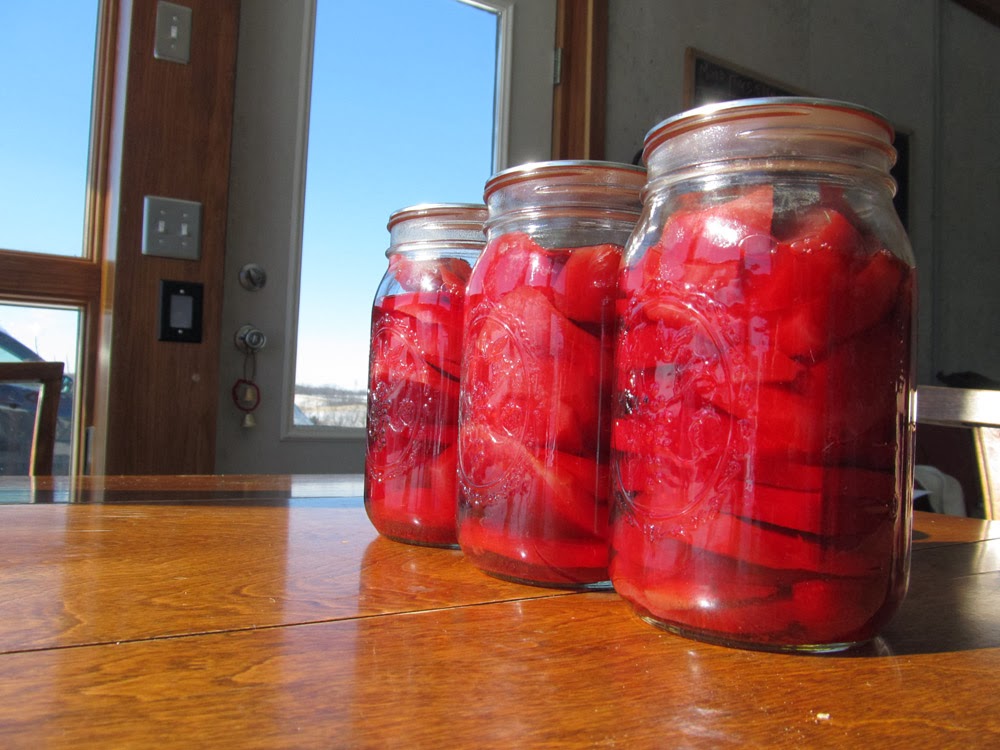Always a Blessing
The first light of morning touched the clouds with a buttery glow, and from the woods at the bottom of the hill, the black tree silhouettes stood in bold contrast against the blue sky, the golden-hued clouds, and the lavender shadowed clouds yet untouched by the sun's warm rays. A moment to pause and soak in the beauty feels like a deep blessing to this soul.
 Walking back up the driveway out of the woods, I smile as I pass the garden because I know a secret. I have buried gold under the rich black garden soil. Saturday, during the thaw, I prized some of it loose from the earth with a pitchfork. An inch of frozen earth gave way to my digging fork, uncovering Scarlet Nantes carrots planted last Fourth of July week along either side of 25-foot soaker hoses. Now, the mature carrots rest in the soil, in Nature's refrigerator.
Walking back up the driveway out of the woods, I smile as I pass the garden because I know a secret. I have buried gold under the rich black garden soil. Saturday, during the thaw, I prized some of it loose from the earth with a pitchfork. An inch of frozen earth gave way to my digging fork, uncovering Scarlet Nantes carrots planted last Fourth of July week along either side of 25-foot soaker hoses. Now, the mature carrots rest in the soil, in Nature's refrigerator. In spite of multiple temperature dips under zero degrees F due to the Polar Vortex, juicy, crunchy, sweet carrots are still held in stasis under that crust of hard-frozen earth. The green tops died back long ago, even the top inch or two of most of the roots have been frozen through, but the rest of the golden-orange roots still tastes sweeter than store-bought carrots and feels like a rich blessing when I haul the fresh vegetables from the earth. I hike them up to the outdoor faucet to rinse off, cutting off the soft tops with a Buck knife.
I tossed the soft tops out into the field, where I imagined hungry White-Tailed Deer might nibble them overnight.
 |
| Sunset on Hawk's Hill |
On Hawk's Hill, I find there is always a blessing, whether in beauty, food, or connection with one another and the earth.
May your day be filled with the awareness of blessings,
Betsy














